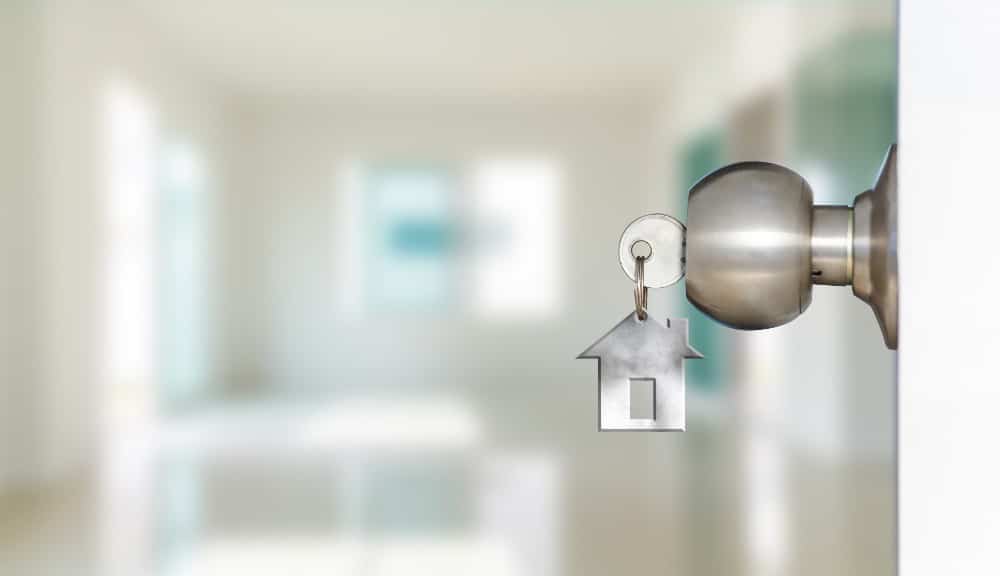An Open House Guide: What You Need to Look For
A house is the most expensive asset most homeowners have. If you’re looking at purchasing a new home, you want to make sure you get the best deal. A bad deal could lead to your financial ruin.
If you’re going to find the best deal, you’ll need to look at a lot of homes. That’s a time-consuming process of scheduling appointments to look at houses.
One solution is to attend open houses. You can stop by whenever it’s convenient. But you don’t want to waste time. You want to be certain the house is one to cross off the list or take another look at by the time you leave. To do this, you need to perform a detailed inspection of the house and you need to know what you’re looking for. We’ve compiled this open house guide so you’ll be the best house-hunter possible.
Bring a good flashlight, notepad, and pen, and let’s get started.
Your Open House Checklist — Outside the House
You want to know the fundamentals of the house are sound. That means a close inspection of the foundation, roof, and overall structure of the outside of the house.
Foundation
Look for large cracks in the foundation. All foundations have small cracks. They’re part of the natural settling. Any crack over ¼ inch wide is a large crack that should concern you. Unless you really like the house, it’s probably best to look elsewhere. If you are still interested in the house, have a structural engineer give an opinion on the foundation.
Look for ½-inch diameter holes in the foundation, pavement near the house, or outdoor steps. These holes are often patched, but they’re indicators of previous termite treatment. You’ll want more information about termite infestation and when the treatment occurred.
Make sure the water spouts from the gutters point away from the house. Water settling against the house can cause problems for the foundation.
When inspecting the interior, you can learn about the foundation. Are the floors level? Drop a marble and see if they roll in one direction. If so, the floors aren’t level and the cause could be an issue with the foundation.
Roof
You may not be able to climb up to the roof, but there’s a lot you can learn from the yard. If the roof looks bad from the yard, it probably looks worse when up close. You can look for signs of roof deterioration when inspecting the interior. There’s much more on this under the interiors heading.
Look for limbs that may endanger the house. You can have these limbs cut back, but it would surprise you how expensive that can be.
You’ve looked for the primary structural issues on the outside, but there’s more you can learn about the structure from the inside.
Your Open House Checklist — Inside the House
The inside is the best part because it’s where you’ll spend most of your time. Don’t get too excited about features and appliances. If this is an open house, this is probably your first look. Keep a level head and look for potential problems.
Windows
Replacing windows can be expensive. You’ll want to know if existing windows are of high quality. But there’s much more you can learn from the windows.
You want windows you can easily open and close. You need to try each window. If they’re not easily opening, it could be a sign of foundation issues. The same is true if there are cracks above the windows.
Electrical
You want to know there are enough plugs for all your appliances. But there’s more you can learn just by inspecting the plugs. If an outlet is warm to the touch, it could be a sign of damaged wiring or too much demand on the circuit. If an open house is causing too much demand on the circuit, how much worse will it be when you plug all your devices in?
Damaged wiring is one of the greatest concerns a homeowner can have. It’s expensive to replace the wiring, but it may be necessary. Bad wiring can be a fire hazard.
Check that the electrical box is in good condition too. Does it look old? If the electrical box looks old and the plugs are warm, you’ll want an expert to assess the situation before you consider purchasing the home.
Water
Unless you relish a future of taking weak showers, you’ll want to turn on the shower heads to see if they all have good pressure.
Flush the toilets too. It’s probably a good idea to flush the toilet with some tissue in it. You need to know that the toilets are working well. Wait until the toilet stops running before you leave. You’ll want to know if the toilets hang. If so, you could have high water bills.
Flush the toilet while the shower is running. See if the temperature changes in the shower after the flush. You don’t want a flush to scald someone in the shower.
Also checking under the sinks in the bathrooms and the kitchen will give you a chance to look for water damage or mold that might be there.
Appliances
Some appliances, such as the dishwasher, stove, and oven, are usually part of the house. Are they old? Will you have to replace them soon? The answers to these questions affect the value of the house. You need these answers to know how much to offer.
Closets
Do the closets have enough room for your clothes? Is there enough space for storage? You need to look.
Insulation
Insulation affects your utility bills. If possible, try to look at the insulation in the attic. Just poking your head in could be enough, and give you a quick chance to look for any signs of insects, rodents, or other animals. You need to know if you’ll have large pest control bills or if infestations may have damaged the structure.
Roof
You can look for roof damage while touring the inside of the house. If you see water stains on the ceiling, that means either a leaking roof or broken pipes. Leaks lead to mildew and/or mold.
Furnace & Water Heater
You’ll want to know about the age of the furnace or water heater. You’ll want to know when they were last inspected. Some faulty water heaters and furnaces can be dangerous.
Contact Us for Help in Finding Your Next Home!
As you can see, there’s a lot to know when considering the purchase of a new home. Let our experts help you with your questions or concerns. At Midwestern Realty, we’re here to walk you through the process. Contact us today online or call us at (517) 278-6400. We look forward to helping you find your dream home.


